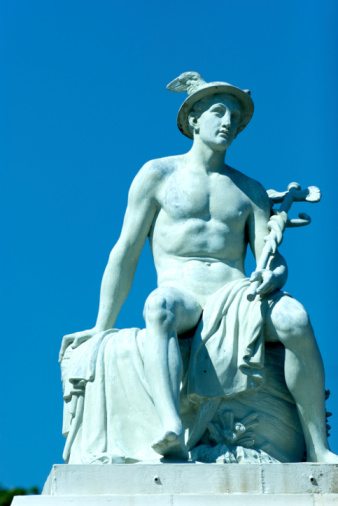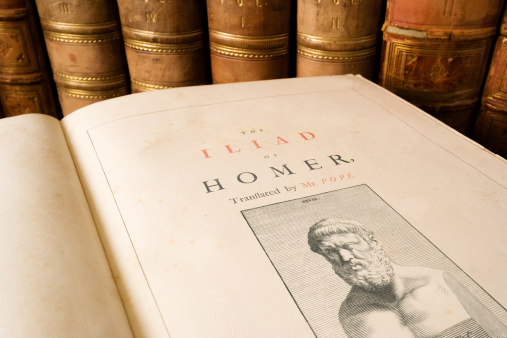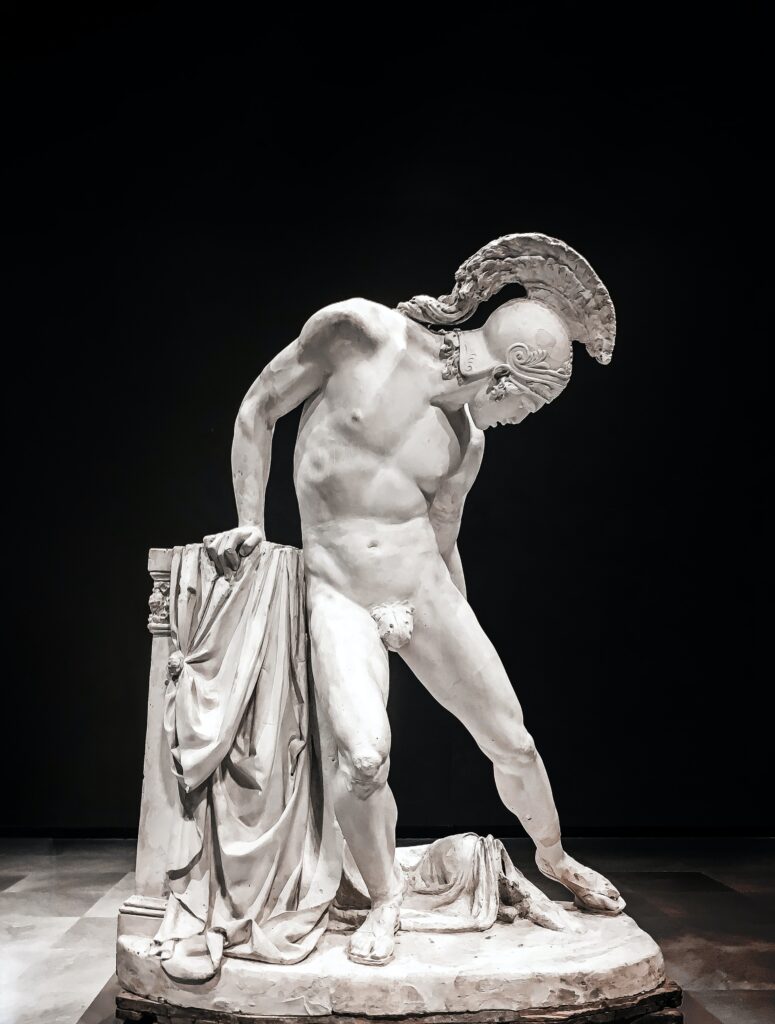The Greek Gods partake in battle quite a lot in Greek Mythology. In the Iliad, the Greek Gods directly join in the war between the Greeks and the Trojans.
In fact, the gods even take different sides during the war which puts some of them against one another on the battlefield. They are incomprehensibly stronger than men, and cannot even be directly faced by a normal person without the help of the gods.
As a child, Dionysus was destroyed to the point of being left as only a heart. However, he was not truly dead and was able to be restored from his heart and be born again which is why he is called Twice Born.
Hermes was once put on trial by the other gods because he killed Argus, and Argus was a servant of Hera. However, Argus was not a true deity so this does not really meet our qualifications.

The answer to the question is no Greek Gods cannot die. They are called deathless gods pretty much universally throughout the mythology.
Can Greek Gods Be Hurt?
However, they can be hurt or subdued, although this is usually only possible because of the work of another divine being. In some cases, demigods can put up a fight against gods as demonstrated by both Heracles and Achilles.
Aphrodite was also able to be hurt by Diomedes while he was being strengthened by Athena. However, Diomedes using that same assistance was unable to hurt Apollo at all.
Achilles was able to have a battle with Apollo, well it mostly consisted of Achilles chasing Apollo around, but Apollo reminded Achilles that he can’t kill him. Achilles was able to give a river god a brutal beat-down not that long before this though, showing a probably obvious hierarchy in power between minor gods and the major gods (i.e. the Olympians).

Uranus is a primordial god and was greatly wounded and driven away by his sons, led by Cronus, during their revolt against him. However, Uranus is not dead as even the primordial gods are also deathless. Uranus even reappears later as a now passive figure in some alternate versions of a few iconic myths involving Zeus receiving counsel from Gaea.
Cronus and most of the other Titans that sided with him in the Titanomachy were imprisoned in Tartarus after losing. However, none of them are truly dead because they too are deathless.

Can Greek Demigods Die?
Yes they can! Part of the point behind the Greek Epic Cycle was that Zeus decided it was time to end the Age of Heroes, which is why we get the Trojan War and the events surrounding it.
Many of those heroes fighting for the Greeks and the Trojans in the Trojan War were demigods. Achilles, who is essentially the central character of the Iliad, is a demigod.
Achilles also dies, although not in the Iliad, after being shot by arrows from Paris who was being guided by Apollo. Paris himself is later killed by Philoctetes using Heracles’s poisoned arrows, which Philoctetes only had because he inherited them from Heracles who had died.
That’s right, Heracles actually died even after all of his incredible labors as a demigod that included things such as holding up the sky and beating Cerberus. However, after Heracles’s death, his soul was taken up to the heavens where he became the god of strength and married Hebe (Zeus and Hera’s daughter).
While it seems that some Greek Demigods, such as King Minos, have incredible lifespans, they are all pretty much mortal. Speaking of Minos, the military of his kingdom at Crete took part in another war that featured god versus god combat when Dionysus invaded an Ares-led India.

“Thamus! The Great God Pan Is Dead!“
You may have heard the phrase before “The Great God Pan is Dead!” and you are probably aware that Pan is the name of a Greek god. If you aren’t, Pan is a greek god who lived in Arcadia and was known for playing music and running around in the woods.
Pan is a very old god and his origins are varied and uncertain. However, it was believed during the reign of Emperor Tiberius that Pan had died.
Emperor Tiberius was the second emperor of the Roman Empire, ruling from 14 AD up until 37 AD. Greece was already a part of the Rome’s territory in the days of Tiberius.
A man named Thamus from an Egyptian ship reported to Italy that on his voyage he heard voices calling out in Greek “Thamus! The Great God Pan is dead!” But had Pan actually died?
Evidence from Pan’s cult shows that it was still very alive and active at this time and would continue to be active for a long time. In fact, there are even some historical theories about Pan’s cult thriving in semi-secrecy during the Middle Ages.
So if Pan didn’t actually die then why did Thamus hear that he did? Well, the popular theory is that what Thamus actually heard is “Tammuz, the all-great god, is dead!”
How is that possible? Well, the word Pan in Greek can mean the name of the deity but it can also mean the word “all.”
So why are they saying Tammuz is dead? Tammuz is a god from the Canaanite and Mesopotamian religions that has a famous death and rebirth cycle. These people that were overheard were probably celebrating that cycle.